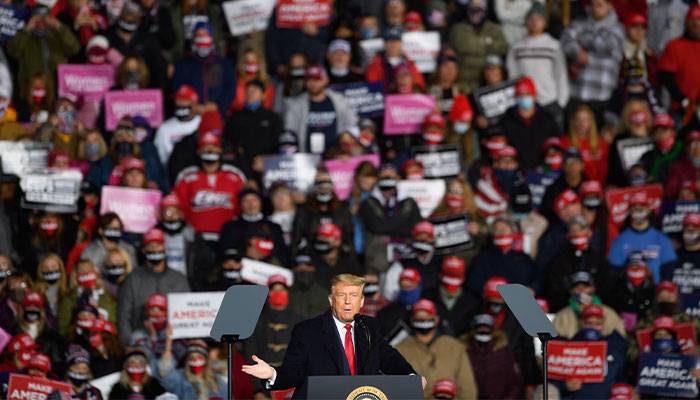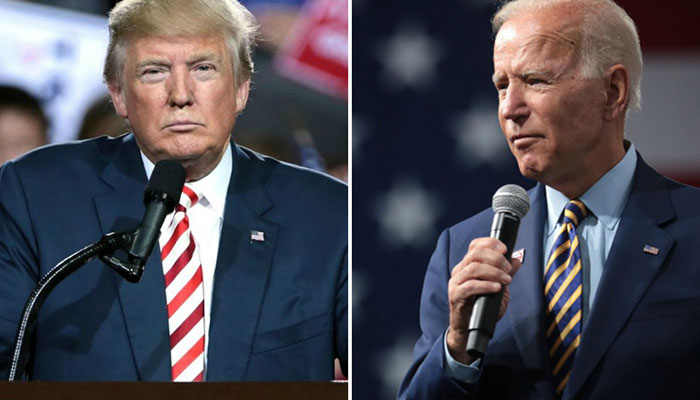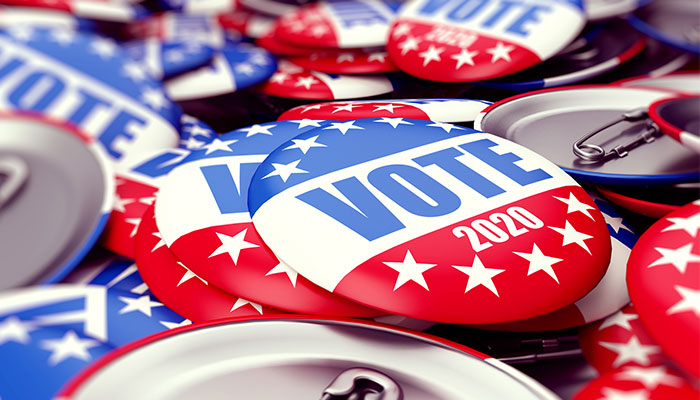To understand why Donald Trump won the 2016 election and why he is still popular among Republicans, you have to look at the different constituencies to whom he is appealing.

Stuck-on support: Donald Trump holds a rally in Erie, Pennsylvania, during the 2020 election campaign.
The latest Gallup poll showed Trump's COVID-19 diagnosis did not diminish support among Republicans, with a 94 per cent approval rating in the first two weeks of October, compared with 4 per cent among Democrats and 43 per cent across the electorate.
There is a trope in the media that white, working class, poorly paid Americans make up the base of Trump’s support.
There is partial truth to that because he articulates their grievances in a way that Democrats are unable to do. This is because the Democratic Party has been associated in the minds of those people with the very set of economic and cultural circumstances that they feel aggrieved by.
But along with this disaffected constituency, there are also large numbers of wealthy, what you might call ‘country club’ Republicans who have always voted Republican.
His reform of the tax code cut taxes by $1.5 trillion and delivered billionaires a lower tax rate than the working class.
They support Trump not necessarily because of the racist, anti-immigrant message that he pushes, but because he promises tax cuts and conservative appointments to the judiciary, and has delivered on both.
Even before the death in September of liberal Supreme Court Justice Ruth Bader Ginsburg, Trump had secured a conservative majority on the bench of the country’s highest court.
His reform of the tax code cut taxes by $1.5 trillion and delivered billionaires a lower tax rate than the working class.
Support from evangelicals surprises
Then there are the evangelical and born-again Christians who voted for Trump in larger numbers than they have voted for any other president, Republican or Democrat, in US history. Eighty-one per cent of voters in this constituency cast their ballot for Trump.

Wide appeal: Dr Lloyd Cox (pictured) says Trump has support among the wealthy, the working class and evangelical Christians.
This deeply surprises people because Trump comes across as a very irreligious person – he’s had affairs, been married three times, and says degrading things about women.
But the reason this constituency votes for him is because he promises conservative judicial appointments who are going to frown on women’s right to choose around fertility and abortion.
Evangelicals have fought for decades against Roe v Wade, the 1973 Supreme Court ruling that effectively legalised abortion in the US, and it was one of Trump’s 2016 pledges that he would get the landmark decision overturned.
The other reason evangelicals vote for someone like Trump is because he embodies the type of masculinity that is valued among people who believe in the patriarchal nuclear family.
It seems counterintuitive that women would support a person like this, but at the 2016 election, a majority of white women voted for Trump; among evangelical women the proportion was higher than in the general white female population.
Looking at recent polling as the 2020 election approaches, it seems Trump’s support among white suburban women has fallen away quite a bit, which is one of the reasons he is pushing the law and order narrative, to try and scare them back into the fold.
Dr Lloyd Cox is a lecturer in the Department of Modern History, Politics and International Relations



